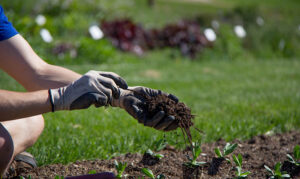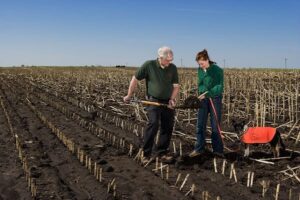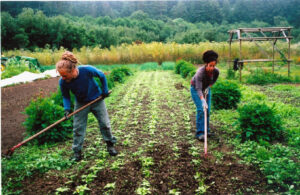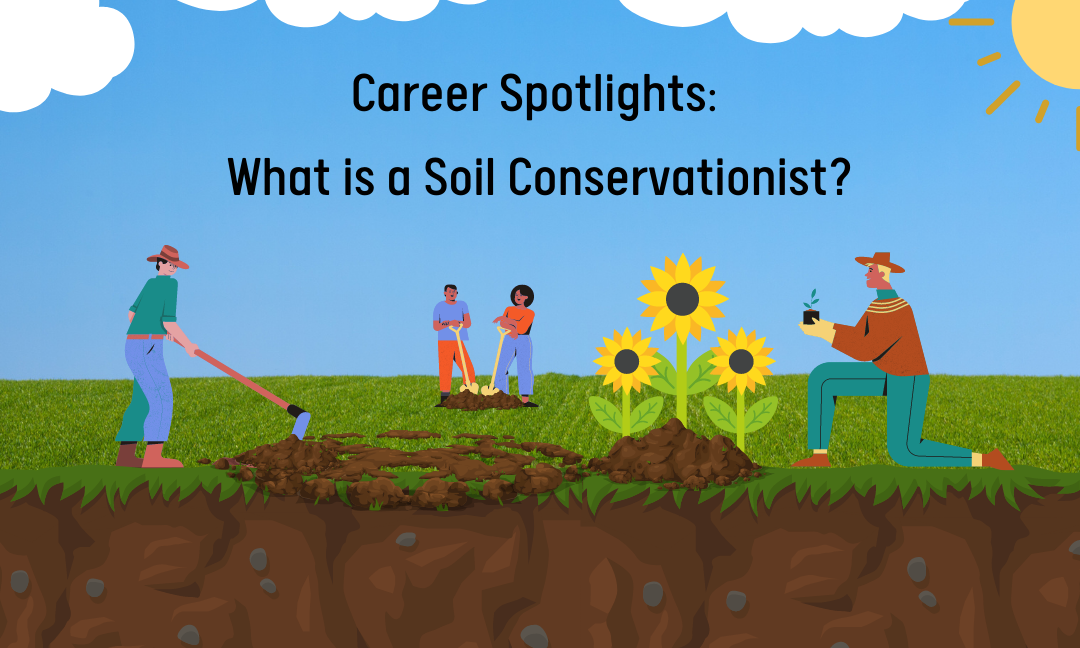Author: Aiva Tavascia
Editor: Rayna Almas
Graphic Designer: Aiva Tavascia
Publisher: Jumana Ismail
Soil is the basis of life on Earth. Not only is it the material within which 95% of plant species grow and thousands of organisms and animals flourish, it is also an important store of carbon. Simply put, healthy soil is fundamental to human survival. Despite this, humans use and abuse our planet’s without thought of consequence. According to some experts, we may only have 60 years left of viable, healthy soil if we continue with our current methods of food production that cause soil erosion and degradation.

(Image: Ontario Agricultural College’s podcast, Digging Into Dirt)
Fortunately, there are individuals whose job it is to educate and help those who impact the land beneath our feet – farmers, construction project managers, and so on – to better understand how to minimize harm. They spend their days monitoring land and developing ways to increase sustainability, then educating others on how to join the fight for soil preservation.
This job? Soil conservationist.
Tell me more!
Soil conservationists work with landowners to manage the continued use of their land. This can look like a lot of different things depending on the project. For example, they may oversee the construction of terraces to prevent erosion on slopes. They may consult with a farmer to determine the best crop rotation plan. If working for the government, they may perform environmental compliance checks and review annual reports.

Regardless of the position or project, there are a few things that most soil conservationists will do as part of their job duties:
- Collect and test soil samples to determine the extent and cause of soil erosion.
- Utilize their findings to prepare reports.
- Communicate their findings orally and in writing to landowners, and use their knowledge to recommend actions.
- Check in periodically to ensure the land is stable and their recommendations are being put into action.
Where would I work and how much would I make as a soil conservationist?
According to ECO Canada, these are some of the places you could work:
- Crop consulting and farm management firms
- Seed or horticulture companies
- Federal, provincial/territorial, or municipal government departments
- Colleges and universities
- Conservation agencies
And, as of 2014, entry level soil conservationists made an average of $58,250 per year. You could expect that to increase as you gain credentials and experience.
This sounds interesting! What steps should I take to become a soil conservationist?
High school students should have strong marks or an interest in biology, chemistry, and math. This will help your chances of being accepted into an undergraduate program in agriculture, environmental science, soil science, or similar. This is usually a requirement, and oftentimes so is a graduate degree.
If you’re looking to gain hands-on experience before making any major decisions, you can consider volunteering or working on a farm. This is a great way to get your hands in the soil and begin learning from others!

Many universities in Ontario have degree programs relevant to becoming a soil conservationist. Perhaps the most notable is the University of Guelph’s Ontario Agricultural College (OAC).
Be sure to check out & keep up with our Career Spotlight series for other career options working in food & food systems.
Content Sources:
https://www.jic.ac.uk/advances/soil-the-foundation-of-life-on-earth/
https://world.time.com/2012/12/14/what-if-the-worlds-soil-runs-out/
https://bestaccreditedcolleges.org/articles/soil-conservationist-job-description-duties-and
Image Sources (in order of appearance in article):
https://www.foodfocusguelph.ca/podcast/episode/c33003d8/digging-into-dirt-i-intro-to-soil
http://career.iresearchnet.com/career-information/soil-conservationist-technician-career/

